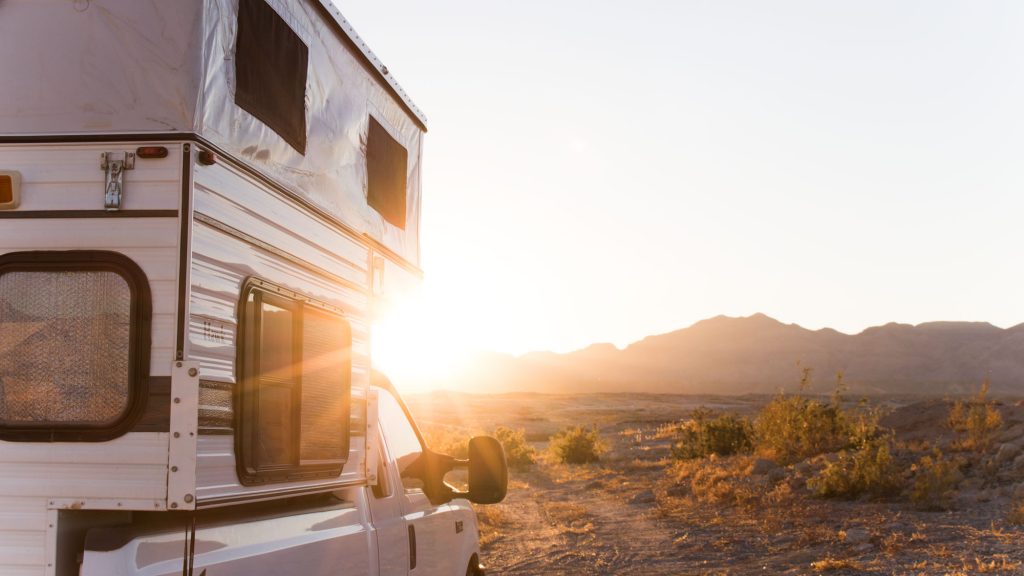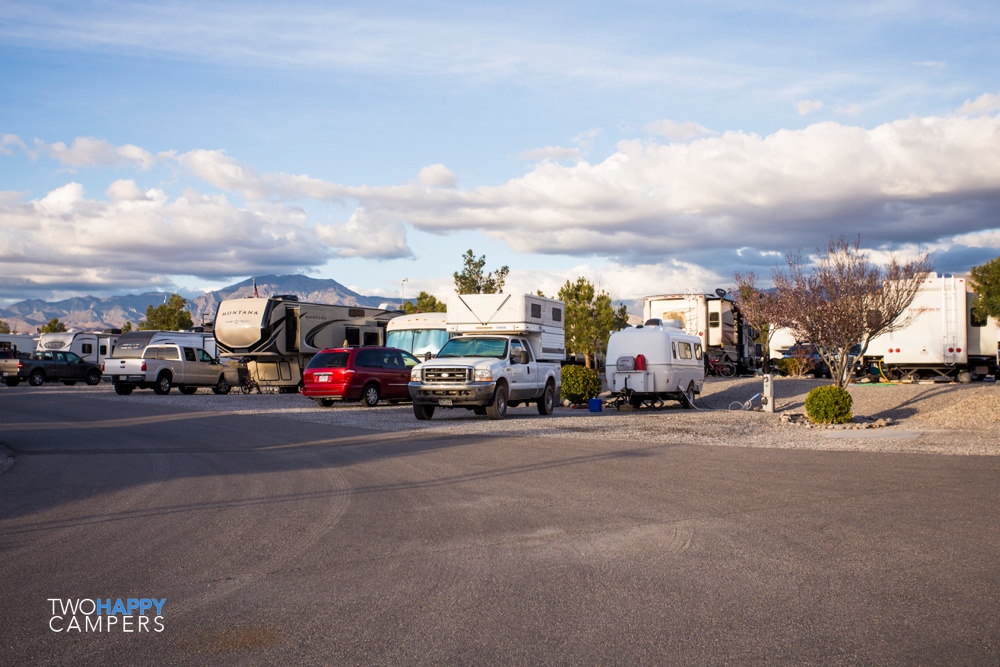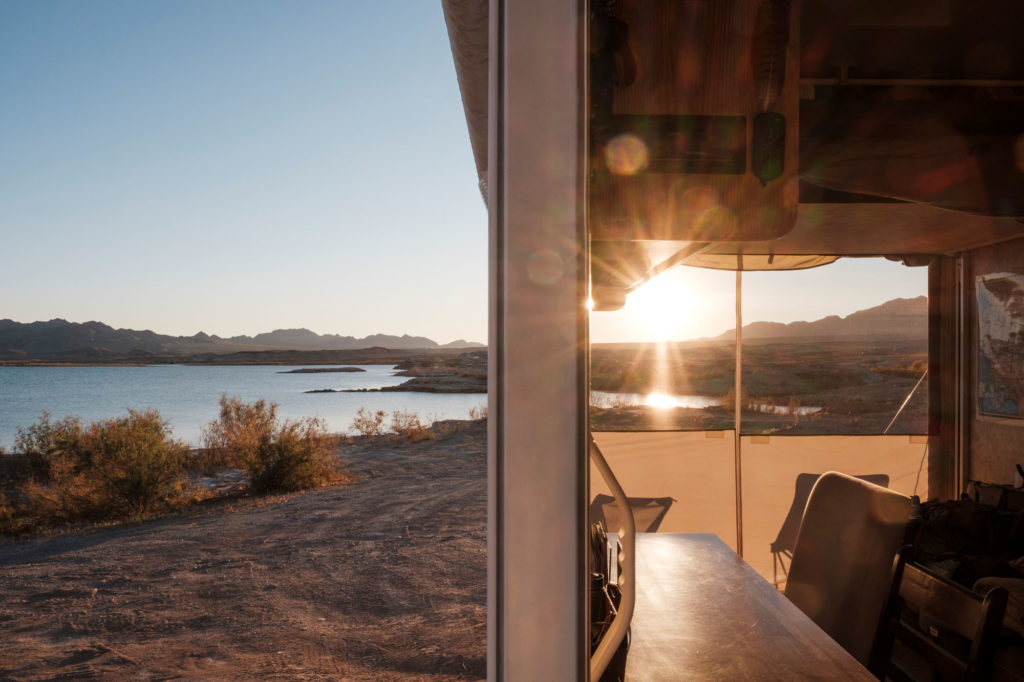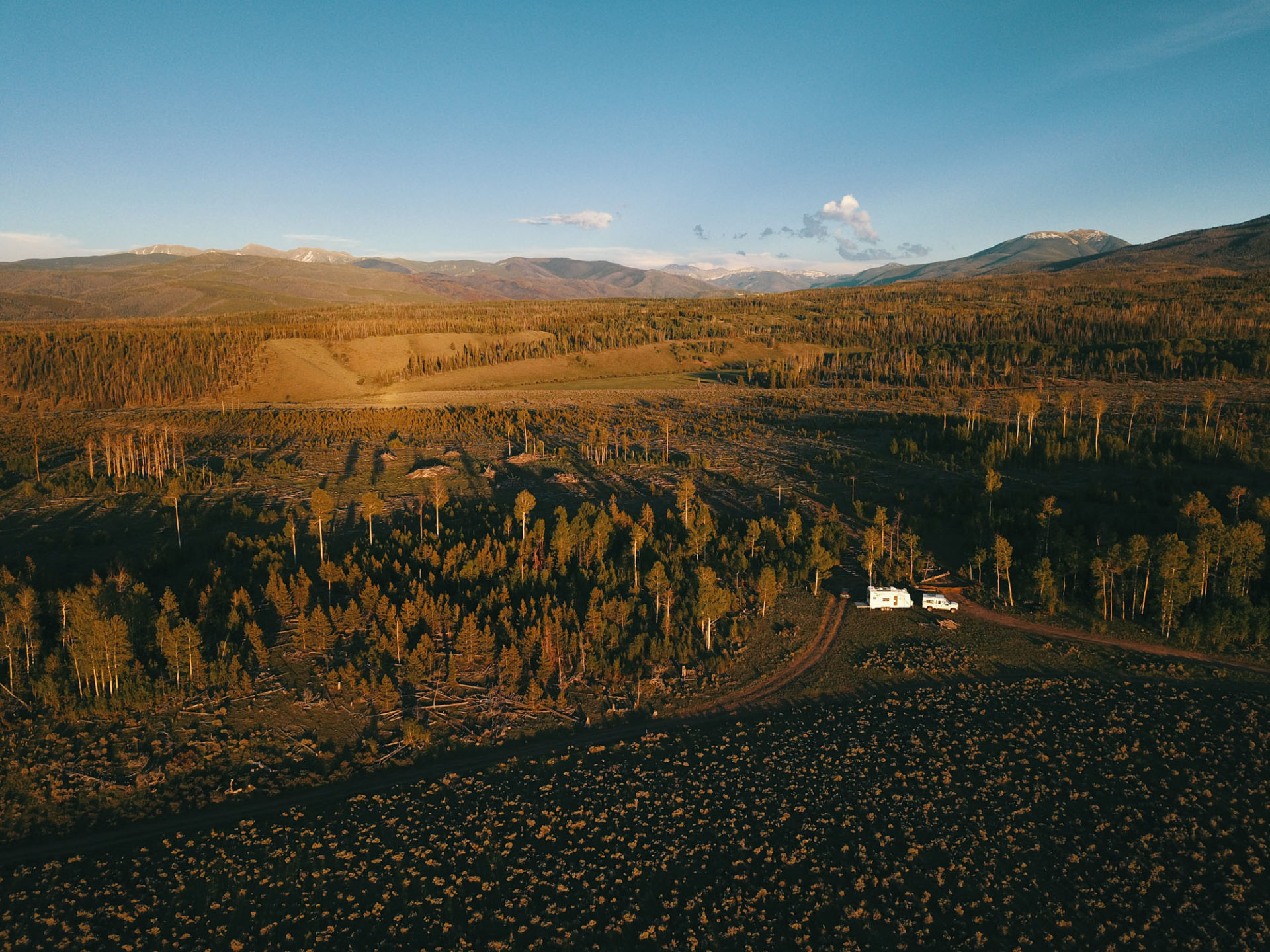Welcome to post 5 of 26 in the A-Z guide to living on the road full-time!
There are many catalysts that may prompt a couple or individual to pursue full-time RV living. Everything from a desire to explore the country, to the ability to follow the weather and travel with the seasons, to the desire to live with less stuff and less expense. While we set out on the road for all of those reasons, it may be our ability to be debt-free that I love the most (though the perpetual 70 degree weather is pretty damn dreamy). However, in complete contrast to that are people we’ve met that have complained that living on the road is too expensive.

Like most things in life, there’s a large spectrum on which each nomad will land when it comes to how much it costs to travel full-time. In this post I’d love to dive in to the expenses associated with this lifestyle. While I can’t tell you exactly how much it will cost you to purchase a rig, outfit it for full-time living, and what your monthly costs will be, I can list many of the things you’ll want to consider.
Up front costs:
Your vehicle
This is going to be your single largest expense in getting started. You may already have a rig, reducing your initial expenses, or you may be starting from scratch. You’ll want to think about whether you want to take out a loan or not which will influence whether or not you want to buy new or used. There are a wide range of options when it comes to choosing a vehicle (truck & trailer, motorhome, van, fifth wheel, truck camper, etc) and I’ll dive deeper in to those options in a future post.
Upgrades & Accessories
It doesn’t matter whether you buy new or used, your RV will need some upgrades and accessories for maximum comfort and functionality. A few examples…
- Leveling blocks & Wheel chocks
- Trailer sway control kit
- Generator
- Upgraded ventilation
- Upgraded mattress
- Upgraded lighting
Solar System
If you’re like us and would prefer to camp off-grid in wild places rather than in campgrounds and RV parks, you’ll need to outfit your rig with a suitable solar system for your lifestyle. Depending on your capabilities and interests, you can install your solar system yourself or pay someone to do it for you. The cost will vary depending on how robust of a system you need and the quality of the components you decide to go with.
On-going costs:
These are some of the on-going costs you’ll incur while living on the road full-time.
- Fuel
- Groceries
- Auto insurance
- Health insurance
- RV loan
- Cell phone
- Internet (we use Starlink and pay $145/mo)
- Virtual mail service (we use Traveling Mailbox, addresses are available in almost any state, we pay $200/yr)
- Storage unit
- Routine auto maintenance
- Nightly fees at campgrounds and RV parks (fees vary, anywhere from $25-$100/night)
- Laundry (we do laundry every 3 weeks and spend about $15 total for 3 loads)
- Entertainment & Recreation (National park entrance fees, guided tours, etc)
You might notice that just because you no longer live in a house doesn’t mean you’re free of many of life’s expenses. The biggest thing you’ll be leaving behind is a mortgage or rent, most everything else will still be with you. And if you if you take out a huge loan on a fancy rig and add campground and RV park fees to that, you might not be getting ahead on your expenses at all. Not that that’s a bad thing, just something to consider if you’re under the impression that living on the road is cheap.
Below is a little insight in to how this lifestyle can be cheap or expensive, depending on how you go about it.
How full-time RV living can be expensive
- You take out a large loan on an RV
- Your RV gets poor gas mileage
- Maintenance on your RV is expensive (think huge tires, complex computerized systems, etc)
- You pay someone to do all your maintenance and repairs for you
- You primarily stay in campgrounds and RV parks
- You eat out at restaurants frequently
- You enjoy paid activities such as guided tours, golf, national parks, etc.
- You move around a lot, therefore consuming a lot of fuel

How full-time RV living can be inexpensive
- You pay for your RV with cash or have a loan with a small payment
- You do all your own maintenance and repairs
- You seek out free camping on public lands
- You primarily cook for yourself
- You enjoy free activities such as hiking, swimming, biking, etc
- You move spots every week or two and don’t travel hundreds of miles between spots, keeping your fuel bill low

As I sit here typing this, Mark is tackling a major maintenance project on our truck. His ability and willingness to maintain everything we own contributes largely to this lifestyle being so affordable for us. Everything in the second list above is how we approach this lifestyle and is what has made being 100% debt-free possible for us. Not everyone that sets out to be a nomad will want to live in this way, nor is living a more expensive lifestyle bad in any way. This post is simply to bring to light the fact that full-time RV living cannot be blatantly labeled as cheap or expensive. It has everything to do with how you go about it.



[…] Living in an RV full-time can be cheap OR expensive. It depends entirely on how you go about it. I wrote about that in more detail here. […]